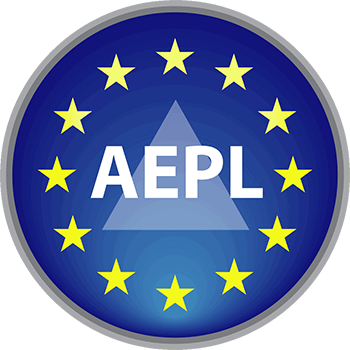The European Parliament gives the AEPL the floor
Published on 16/02/2024On 13 February 2024, we were invited by the European Parliament to take part in this meeting on the theme of " The importance of dialogue under Article 17 in raising awareness disinformation and foreign interference"..
Programme here / Streaming here
Here is the paper we presented:
We would like to thank the 1er VP Karas for inviting us to take part in this session of the Article 17 dialogue on disinformation and foreign interference, which are real scourges for our democracies that respect human rights. The evidence is clear. For some years now, the European institutions, as well as the media, Ministries of Education and civil society, have been stepping up their efforts to counter "alternative truths", which are nothing more than allegations, false in the face of the facts.
Two of the main sources of disinformation [1] are :
- the confirmation biasThese are based on the fact that "faced with a plethora of information on offer, the individual can be easily tempted to compose a representation of the world that is convenient rather than true".
- the informational credulitywhich can be expressed as "the greater the amount of unselected information in a social space, the more credulity will spread".
Sadly, these methods are sometimes used by members of parliament themselves. A recent article by a French MEP, Mr Lacapelle, published last week in the magazine Valeurs actuelles, illustrates their use as a political weapon.
Disregarding the SME code of conduct [2], he described the resolution as follows [3] of the European Parliament on 17 January 2024, calling the European Historical Conscience "scandalous" and even "despicable" and deeming it "infested throughout by Wokist ideology". While the resolution calls for "a responsible and critical analysis of history as a condition for learning from the past", the MEP sees in this text the EU's desire to impose a European, even globalised, history on national narratives. He accuses the EP of falsifying history, when in fact it is the EP itself that is reformulating history in its own interests!
Here are the questions we put to Mr Lacapelle to demonstrate the inanity of his remarks. In August 1695, a bombardment triggered a fire that ravaged Brussels and killed many innocent civilians. Is this act, which today would be considered a war crime, one of the glorious pages of the reign of Louis XIV or can it be re-evaluated as the resolution recommends?
And secondly, are the MEPs who voted against the text contributing to the defence of democratic values? Or do they regret the days when all that was national was the only vision promoted? We invite them to read the Franco-German History Handbook [4] "Europe and the world since 1945". It might open their minds.
That said, we are pleased to note the European Parliament's resolution of 12 December on the European elections (A9-0332/2023), based on the report by the Committee on Constitutional Affairs drawn up by MEPs Sven Simon and Domenec Ruiz Devesa.
We agree with several of the proposals, particularly those referring to the efforts made by the institutions to combat disinformation and foreign interference, such as the 2022 code of good practice against disinformation and the early warning system.
We also support the proposals to increase the visibility of the European Parliament and public participation in the forthcoming elections.
In conclusion, in the face of these threats, we strongly urge the European institutions to continue the fight against the threat of disinformation by unreservedly condemning speeches that attack the values they defend and by promoting, by all possible means, education in critical thinking and free thought.
Claude WACHTELEAR - "Europe of Rights" Leader
Eric PARADIS - Future of Europe Leader
[1] Gérald Bronner, "La démocratie des crédules", PUF, 2013 (p. 33 and p. 48)
[2] The code of conduct came into force on 1 January 2012 and was last revised in 2023. Its founding principle is that MEPs act solely in the public interest and conduct their work with disinterestedness, integrity, transparency and diligence, honesty and responsibility, while ensuring preserve dignity and reputation of the European Parliament.
[3] https://www.europarl.europa.eu/doceo/document/TA-9-2024-0030_FR.html
























